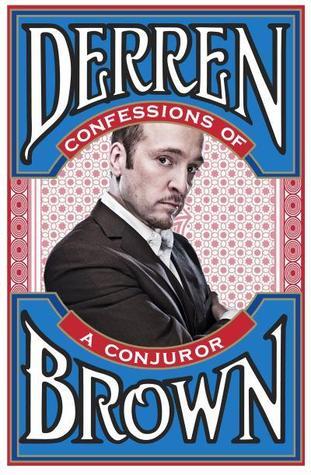More on this book
Kindle Notes & Highlights
We have evolved enormously efficient ways of telling if a person is a threat to us or to our group,
In constantly sizing people up, I was of course necessarily reducing them to stereotypes.
Time passes, and the concerns of the moment will make us smile further down the road.
To create a powerful piece of magic through the simplest, boldest method is one of the sweetest pleasures of the craft.
As in magic, in science. The finest theories are the simplest ones that explain the most.
The deadly formula ‘I must not . . .’ puts the prohibited act foremost in our minds and allows the idea of its execution to quietly blossom and flourish until we concede defeat and let the proscribed word slip from our mouths, or, through frantic over-compensation, achieve for ourselves the exact end we had wished so dearly to avoid.
The single most valuable human trait, the one quality every schoolchild and adult should be taught to nurture, is, quite simply, kindness.
Kindness. If you prefer, compassion. Even benevolence. It is the quality that makes people lovely. If that sounds rather anaemic, it’s because it is the opposite of setting goals and learning how to persuade and close deals; the antithesis of self-reliance and get-what-you-want thinking which form the backbone of modern self-improvement. Its simplicity and obviousness mean that we forget it constantly when we try to impress people, yet it is the most impressive trait we can ever show.
That clever person will not like us more if we appear clever ourselves. He will like us more if we are kind, and lovely, and personable, and not trying to be anything else.
Again and again, experimenters realised that the feeling of pleasure derived from committing an act of altruism far outlasts the pleasure caused by treating oneself.
Annaeus Seneca: if you have high expectations of how smoothly life will glide forward every day, you will be routinely disappointed and therefore prone to anger. Lower those expectations, and the world becomes a less frustrating and therefore more delightful place.
Part of kindness therefore involves a more realistic appraisal of our impact upon other people, and being aware of our tendency to cast them as cameo roles in the fascinating epic of our own lives.
We do our best to make patterns, especially human patterns, out of randomness.
We like to think we are more in control of random events than we are.
The Cabinet is powerful because it pulls all focus towards the process at the same time as it hides it with the front curtain. It flaunts process, and forces the spectator to speculate madly from moment to moment what could be happening, and to watch, alert and wide-eyed, in case he spots anything that confirms the suspected culpability of the medium.
When we do not understand some piece of science (to paraphrase Hume), it becomes indistinguishable from magic.
Perhaps there will be a move away from the them-and-us model of clever marketing folk v. us dumb, programmable consumer-robots to something more free-flowing, as we accept rather than try to ignore the deep irrationality and unpredictability of our decision-making processes.
the thought I must not . . . has the capacity to send one spiralling towards the very action one is determined to avoid.
My grandfather, whom I adored, was creative enough to suggest a hypnotherapist to rid me of this demon – hence my first taste of this arcane world that would eventually lead to my strange career lay in being treated for debilitating tics.
to the way most of history is made: in the light of the present we pick and choose events which lead most conveniently to the desired end point of the here and now; we then mistake that all-too-convenient narrative for truth.
We constantly edit and delete information, for we would be otherwise unable to function. If something is presented as unimportant, and we have no reason to question that status, it will slip by unnoticed, even if it contains the solution to an important riddle.
The magician speaks with rehearsed spiel but does not engage; he does not reach those in his audience because he has not learnt to care about them.
Participant. A participant is active, a part of the process, and a necessary component of the magical experience. This is how it should be.
Magic means nothing. It has the potential to connect us to something wonderful, as does any performance, but it is not wonderful in itself, for it is inseparable from the particular performance in which it is experienced.
But as long as we teach God, we also need Satan: for all the Church’s fighting talk of defeating him, she re-creates and empowers him every day through keeping the fear alive and well in her ranks.


